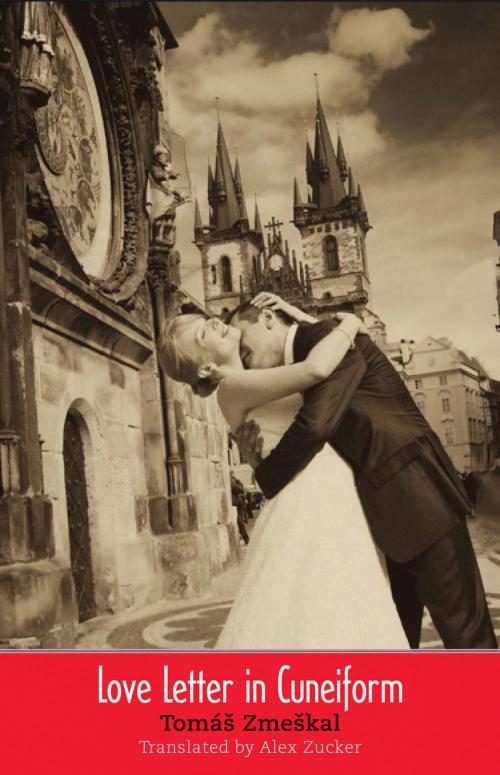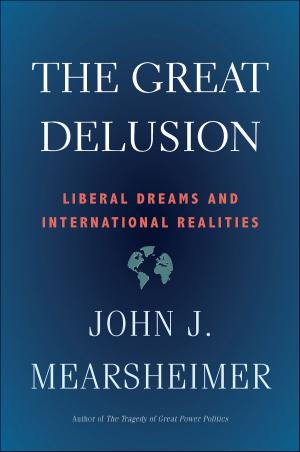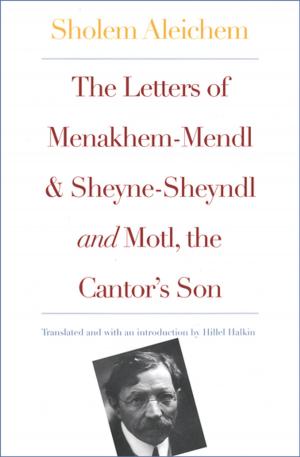A Love Letter in Cuneiform
Nonfiction, History, Eastern Europe, Fiction & Literature, Historical, Literary| Author: | Tomáš Zmeškal | ISBN: | 9780300188592 |
| Publisher: | Yale University Press | Publication: | March 21, 2016 |
| Imprint: | Yale University Press | Language: | English |
| Author: | Tomáš Zmeškal |
| ISBN: | 9780300188592 |
| Publisher: | Yale University Press |
| Publication: | March 21, 2016 |
| Imprint: | Yale University Press |
| Language: | English |
Set in Czechoslovakia between the 1940s and the 1990s, Tomáš Zmeškal’s stimulating novel focuses on one family’s tragic story of love and the unspoken. Josef meets his wife, Kveta, before the Second World War at a public lecture on Hittite culture. Kveta chooses to marry Josef over their mutual friend Hynek, but when her husband is later arrested and imprisoned for an unnamed crime, Kveta gives herself to Hynek in return for help and advice. The author explores the complexities of what is not spoken, what cannot be said, the repercussions of silence after an ordeal, the absurdity of forgotten pain, and what it is to be an outsider.
In Zmeškal’s tale, told not chronologically but rather as a mosaic of events, time progresses unevenly and unpredictably, as does one’s understanding. The saga belongs to a particular family, but it also exposes the larger, ongoing struggle of postcommunist Eastern Europe to come to terms with suffering when catharsis is denied. Reporting from a fresh, multicultural perspective, Zmeškal makes a welcome contribution to European literature in the twenty-first century.
In Zmeškal’s tale, told not chronologically but rather as a mosaic of events, time progresses unevenly and unpredictably, as does one’s understanding. The saga belongs to a particular family, but it also exposes the larger, ongoing struggle of postcommunist Eastern Europe to come to terms with suffering when catharsis is denied. Reporting from a fresh, multicultural perspective, Zmeškal makes a welcome contribution to European literature in the twenty-first century.
Set in Czechoslovakia between the 1940s and the 1990s, Tomáš Zmeškal’s stimulating novel focuses on one family’s tragic story of love and the unspoken. Josef meets his wife, Kveta, before the Second World War at a public lecture on Hittite culture. Kveta chooses to marry Josef over their mutual friend Hynek, but when her husband is later arrested and imprisoned for an unnamed crime, Kveta gives herself to Hynek in return for help and advice. The author explores the complexities of what is not spoken, what cannot be said, the repercussions of silence after an ordeal, the absurdity of forgotten pain, and what it is to be an outsider.
In Zmeškal’s tale, told not chronologically but rather as a mosaic of events, time progresses unevenly and unpredictably, as does one’s understanding. The saga belongs to a particular family, but it also exposes the larger, ongoing struggle of postcommunist Eastern Europe to come to terms with suffering when catharsis is denied. Reporting from a fresh, multicultural perspective, Zmeškal makes a welcome contribution to European literature in the twenty-first century.
In Zmeškal’s tale, told not chronologically but rather as a mosaic of events, time progresses unevenly and unpredictably, as does one’s understanding. The saga belongs to a particular family, but it also exposes the larger, ongoing struggle of postcommunist Eastern Europe to come to terms with suffering when catharsis is denied. Reporting from a fresh, multicultural perspective, Zmeškal makes a welcome contribution to European literature in the twenty-first century.















